Introduction to Skeletal Trailers
In the complex landscape of freight transportation, skeletal trailers play an indispensable role, offering a blend of efficiency and versatility. These specialized semi-trailers, characterized by their unique skeletal frame, are designed to transport shipping containers securely and efficiently. As the logistics industry evolves, the demand for robust and adaptable transport solutions continues to grow, positioning skeletal trailers at the forefront of this transformation.
What are Skeletal Trailers?
Skeletal trailers are semi-trailers constructed with a minimalistic design, featuring a skeletal frame that supports containers without enclosing them. This design reduces weight and increases payload capacity, making them ideal for long-haul transportation of standard ISO containers. Available in various configurations, including extendable, fixed, and multi-modal designs, skeletal trailers provide flexibility that meets the ever-changing demands of the shipping and logistics sectors.

Key Components of Skeletal Trailers
- Frame Structure: The skeletal frame is primarily made of high-strength steel, ensuring durability while keeping weight to a minimum.
- Container Locks: Custom-engineered locking mechanisms secure ISO containers to the trailer frame, preventing any movement during transportation.
- Axle Configuration: Depending on the load requirements, skeletal trailers come with various axle configurations, allowing optimized weight distribution and enhanced maneuverability.
- Suspension System: Equipped with advanced suspension systems, they ensure a smooth ride, minimizing cargo damage and enhancing vehicle stability.
Advantages of Using Skeletal Trailers
Increased Payload Capacity
The streamlined design of skeletal trailers significantly reduces their own weight, allowing for an increased payload capacity. This advantage is crucial for operators looking to maximize their efficiency and profitability.

Versatility in Loading Options
Skeletal trailers are designed to accommodate various container sizes (20, 40, and 45 feet), making them ideal for shipping diverse types of cargo. Additionally, they facilitate efficient loading and unloading operations, reducing turnaround times.
Cost Efficiency
Investing in skeletal trailers can lead to reduced operational costs. Their lightweight construction translates to lower fuel consumption, while their design minimizes maintenance costs due to fewer moving parts compared to traditional trailers.
Enhanced Maneuverability
The configuration of skeletal trailers enhances maneuverability, particularly in urban environments or tight loading bays. This makes them a preferred choice among logistics companies operating in densely populated areas.
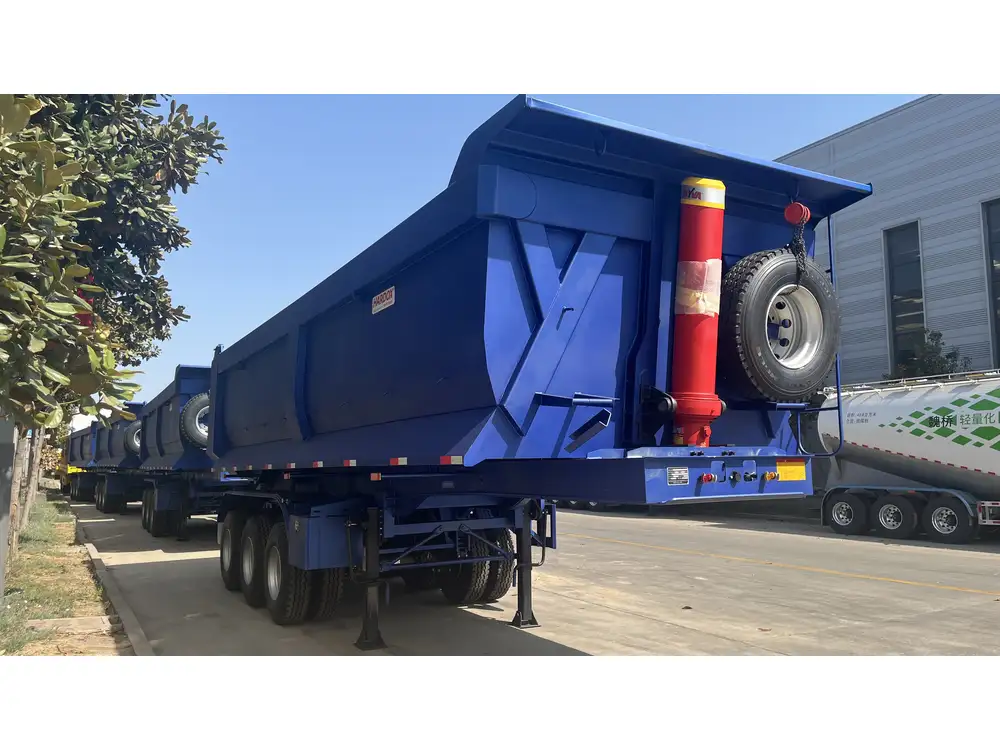
Applications of Skeletal Trailers
Skeletal trailers are employed across various sectors, demonstrating their adaptability and efficiency. Let’s explore some key applications:
1. Maritime Logistics
In the realm of shipping, skeletal trailers are pivotal in transporting containers from ports to distribution centers. Their design facilitates the seamless transfer of containers, reducing dwell times at ports and enhancing overall operational efficiency.
2. Intermodal Transportation
Skeletal trailers are extensively used in intermodal transport, allowing for efficient movement of cargo across different modes of transport. This capability reduces handling costs and transit times, markedly improving supply chain efficiency.
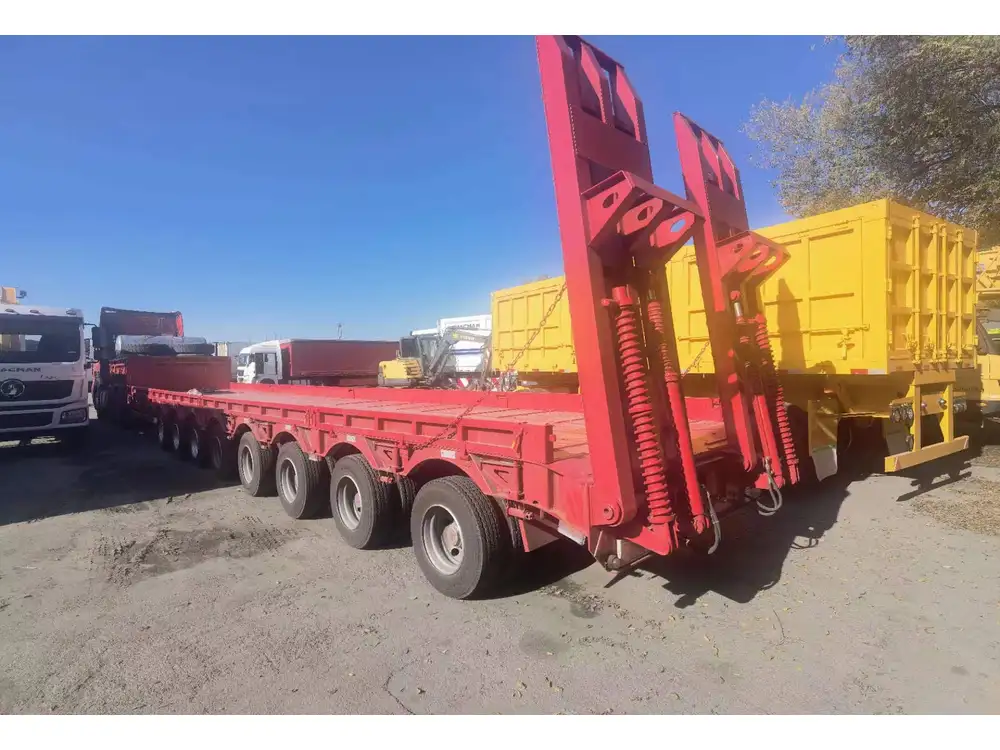
3. Construction and Heavy Equipment
The construction industry often relies on skeletal trailers for transporting heavy equipment and materials. Their robust design accommodates hefty loads while maintaining stability during transit.
4. Retail and Distribution
In the retail sector, where quick distribution cycles are paramount, skeletal trailers ensure rapid delivery of goods across regional and national networks. Their versatility in handling various load types makes them a staple in retail logistics.
Considerations When Choosing a Skeletal Trailer
Selecting the right skeletal trailer requires careful consideration of various factors to ensure it aligns with operational needs. Here’s a breakdown:
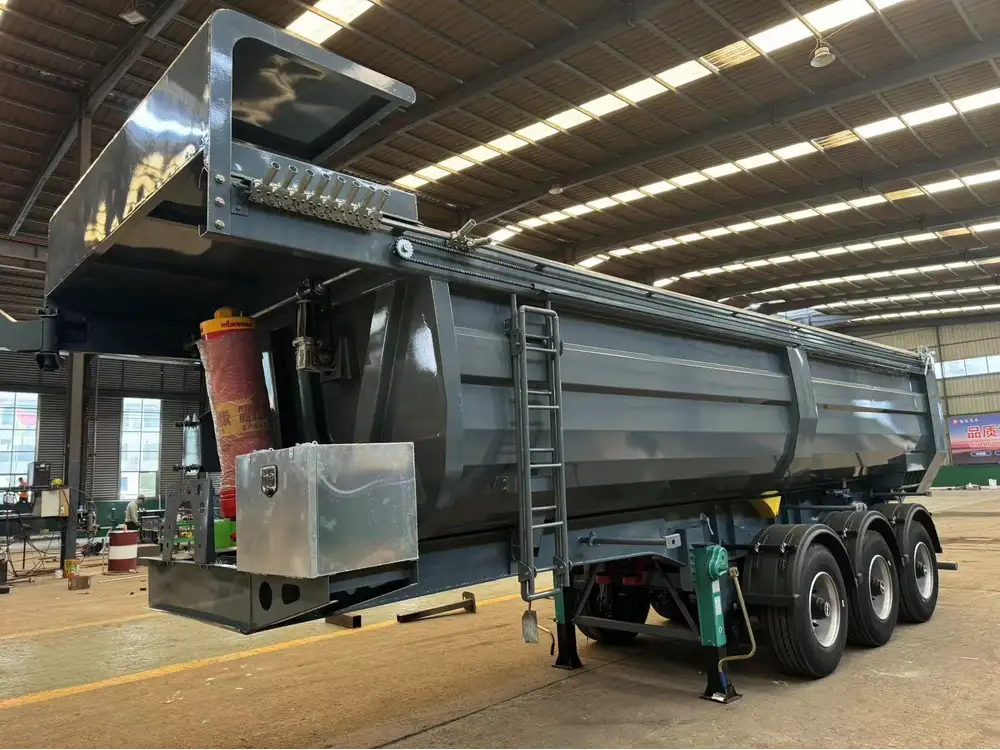
1. Load Capacity Requirements
Understanding your load capacity requirements is essential. Assess the types of containers you will be transporting and their weights to select a trailer that meets your needs without compromising safety.
2. Axle Configuration
The axle configuration impacts both load distribution and maneuverability. Consider whether you need a tri-axle or tandem configuration based on your typical load and route requirements.
3. Trailer Length and Size
Different operations may require varying trailer lengths. Assess the types of containers you plan to transport and ensure the trailer accommodates them efficiently.

4. Suspension Type
The choice of suspension system is crucial for maintaining stability and cargo safety during transit. Consider whether air suspension or leaf spring suspension systems best cater to your transport requirements.
Maintenance and Care for Skeletal Trailers
Maintaining skeletal trailers in peak condition is vital for ensuring safety and performance. Here’s a structured approach to effective maintenance practices:
Regular Inspections and Checks
- Monthly Inspections: Conduct thorough checks on vital components, including brakes, lights, and the integrity of the skeletal frame.
- Tire Maintenance: Regularly inspect tire pressures and tread depth; maintain alignment to ensure optimal performance.

Cleaning and Preservation
Keeping the trailer clean prevents rust and corrosion. Regularly wash the trailer, paying special attention to the frame and areas prone to dirt accumulation. Consider applying protective coatings to safeguard against environmental wear.
Lubrication of Moving Parts
Ensure all moving parts are adequately lubricated to minimize friction and wear. Regular lubrication extends the life of components and enhances overall efficiency.
Documentation and Record Keeping
Maintain detailed records of all inspections and maintenance activities. This documentation aids in tracking the performance of the trailer and is beneficial for warranty claims or resale value.
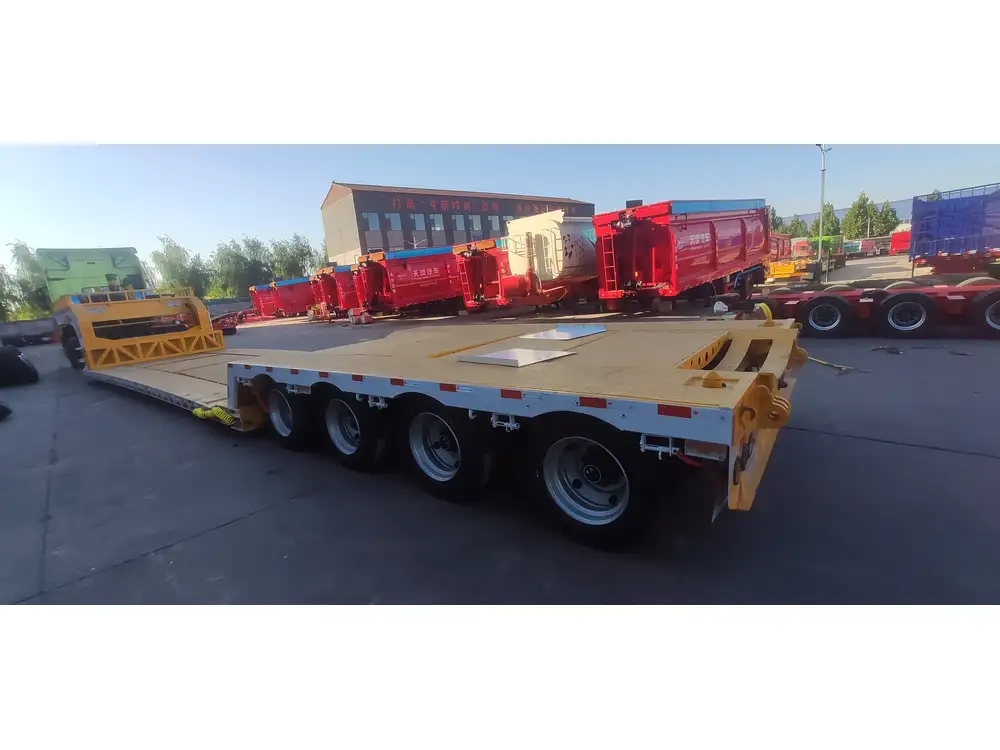
Sustainability in Skeletal Trailer Manufacturing
As global awareness of environmental issues increases, the manufacturing industry is pivoting toward more sustainable practices. Skeletal trailers, with their lightweight structures, contribute positively to eco-friendly logistics. By reducing fuel consumption and subsequently lowering carbon emissions, these trailers support a greener supply chain.
Innovations in Material Use
Advancements in materials science are paving the way for the use of composite materials in skeletal trailers. Lightweight yet strong materials not only enhance the payload capacity but also improve fuel efficiency, further aligning with sustainability goals.
Recycling and End-of-Life Management
Understanding the life cycle of skeletal trailers encourages manufacturers and buyers to consider end-of-life options. Implementing recycling protocols for the metal components and ensuring responsible disposal of tires and electronics can significantly reduce the environmental footprint.
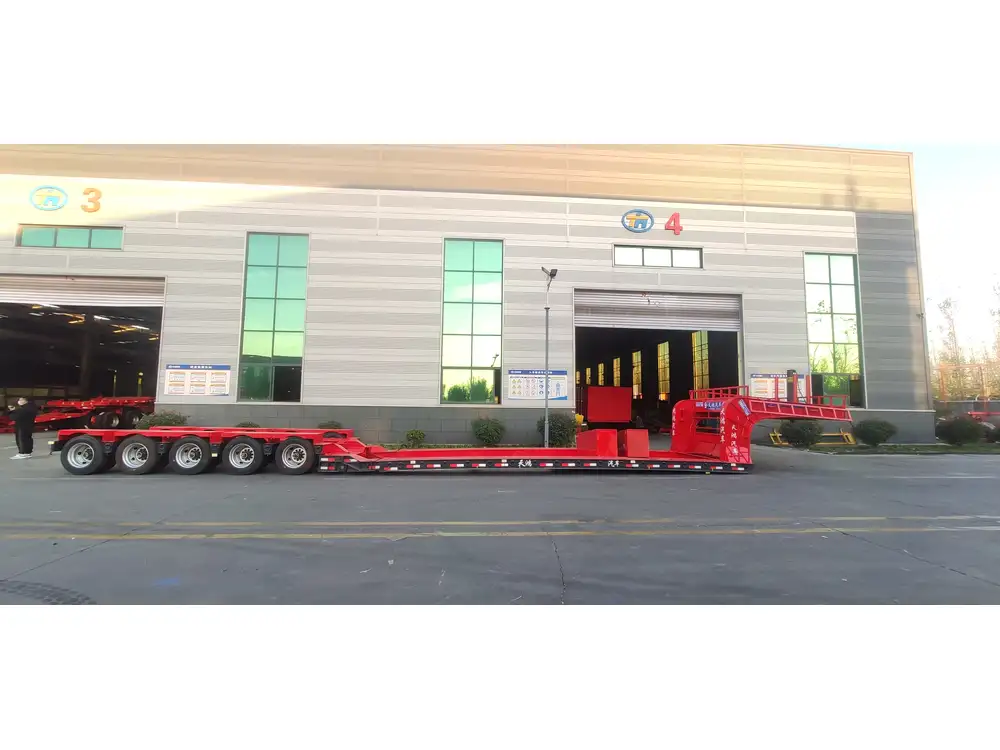
Conclusion: The Future of Skeletal Trailers
The future of skeletal trailers is bright and evolving, driven by trends in logistics, technological advancements, and sustainability initiatives. As reliance on these trailers continues to grow, innovations in design and manufacturing processes are expected to propel their efficiency and utility even further.
Ultimately, investing in high-quality skeletal trailers represents a strategic choice for businesses aiming to enhance their logistics operations. By understanding their advantages, applications, and maintenance requirements, operators can harness the full potential of skeletal trailers, ensuring seamless and efficient cargo transportation.
Comparison Table of Trailer Types
| Aspect | Skeletal Trailers | Flatbed Trailers | Enclosed Trailers |
|---|---|---|---|
| Frame | Minimalistic | Standard | Fully enclosed |
| Weight | Lightweight | Moderate | Heavier |
| Payload Efficiency | High | Moderate | Low |
| Versatility | High | Moderate | Low |
| Ideal Use | Container transport | Open cargo | Weather-sensitive cargo |
| Cost Efficiency | High | Moderate | Low |
Through this comprehensive examination of skeletal trailers, it becomes evident that their incorporation into logistics operations can lead to significant efficiency improvements and cost savings, ensuring a competitive edge in a fast-evolving market.



